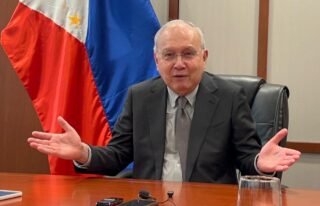Money in the central bank’s Special Deposit Accounts (SDA) continued to shrink at the end of the first half following moves to force banks that keep their funds idle to instead lend to productive activities.
Documents from the Bangko Sentral ng Pilipinas (BSP) showed that the total funds in SDAs declined to P1.79 trillion at the end of June from P1.85 trillion the month before. This was also down from the record-high end-month level of P1.92 trillion last February.
SDAs were originally envisioned as a tool that the BSP could use to mop up excess liquidity from the economy to curb inflation pressures without having to touch key policy rates.
However, with the government’s improved fiscal position pushing down yields for state-issued IOUs, local banks resorted to parking depositors’ cash in SDA accounts as they searched for short-term investments that paid higher returns.
The build-up in SDA funds also came amid the slow implementation of the Aquino administration’s flagship Public-Private Partnership (PPP) infrastructure program. Funds originally meant for big-ticket infrastructure projects were parked in SDAs instead.
In a bid to reverse the cycle, the BSP slashed since the start of 2013 the interest rates for SDAs by 150 basis points to a record low of 2 percent across all maturities.
Access to SDAs was also restricted to trust accounts, blocking off individual depositors who accounted for an estimated P1 trillion of the total.
By the end of July, 30 percent of individual deposits should be taken out of SDAs while the rest should be out by November.
Sought for comment, one industry executive said banks were expected to divert the cash pulled out of SDAs into investment funds, private debt securities, stocks and, when all other alternatives have been exhausted, back to the BSP through reverse repurchase agreements.
He said it was unlikely that the release of funds from SDAs would stoke inflation to a point that could potentially choke the economy. The banker, who heads the local operations of a major foreign bank, said the growing Philippine economy would be able to absorb the money comfortably without leading to higher inflation.



